News Flash: Substance Sells
One of the many lessons we should have learned from Hurricane Katrina is that Americans care about the suffering of other Americans, no matter how much the media would rather cover glitz and scandal.WASHINGTON — Who could not guffaw over the news that Leona Helmsley left her dog Trouble a $12-million trust fund while cutting two of her grandchildren out of her will? The queen of mean, as the tabloids called her, commanded that when “Trouble dies, her remains shall be buried next to my remains in the Helmsley mausoleum.”
But maybe Helmsley’s obsessions aren’t as different from our own as we’d like to think. Consider the contrast between the extravagant coverage afforded NFL quarterback Michael Vick for his guilty plea on a federal dogfighting charge and the scant attention given a new Census Bureau finding that the number of Americans without health insurance had risen by 2.2 million, to a total of 47 million. The number of Americans under 18 without health insurance rose to 8.7 million.
The Census Bureau report was a one-day story largely buried on the inside pages. So do we care more about dogs than uninsured kids?
Animal lovers: Hold your brickbats. Our family has a delightful dog rescued from a shelter and I hate cruelty to our canine friends. The issue here is not dogs but people, specifically people in the media.
Why is it that the poor — and, for that matter, the struggling middle class too — disappear in the media, barricaded behind our fixation on celebrity, our titillation over personal sin and public shame, our fascination with every detail of every divorce and affair of every movie star, rock idol and sports phenom?
The hiding of the poor is systematic, according to a new study of 38 months of nightly news broadcasts on CBS, NBC and ABC by Fairness and Accuracy in Reporting (FAIR), a left-of-center organization devoted to media criticism.
“With rare exceptions, such as the aftermath of Katrina,” the study found, “poverty and the poor seldom even appear on the evening news — and when they do, they are relegated mostly to merely speaking in platitudes about their hardships.”
In the period between Sept. 11, 2003, and Oct. 30, 2006, there were just 58 stories about poverty on the three network newscasts, according to the study. FAIR couldn’t resist noting that by contrast, in the same period, there were 69 stories about Michael Jackson’s legal woes — and that’s just one celebrity.
The group estimated that the 191 sources quoted in poverty stories amounted to less than one-half of 1 percent of sources used in news broadcasts in that period.
To do justice toward the networks, they provided extraordinary coverage of Hurricane Katrina in 2005. Anchors such as Brian Williams of NBC and Anderson Cooper of CNN (cable news was not covered in the FAIR study) brought urgency and old-fashioned moral outrage to their reporting on how poor people in New Orleans were treated, and the anchors were backed up by scores of committed reporters and producers dedicated to documenting a natural and human disaster.
But the Katrina coverage stood out precisely because it was the exception. It took a hurricane to sweep poor people into the news — and they didn’t stay long.
There is another lesson from Katrina: that covering poverty and inequality makes for compelling journalism.
At its best, broadcast news shines its powerful beacon on problems we have ignored and injustices we can remedy. On May 21, 1968, CBS News broadcast “Hunger in America,” a documentary reported by the legendary Charles Kuralt and David Culhane. One of the viewers that night was a U.S. senator named George McGovern.
“It was 1968 and I remember saying, ‘Why are they looking at hunger in the United States?’ ” McGovern recalled in an interview for a recent film on the food stamp program, a film produced by the liberal Center on Budget and Policy Priorities. McGovern was riveted by a young boy who told CBS that he was “ashamed” that he did not have enough money to buy food at school.
“I said to my family that was watching the documentary with me, ‘You know, it’s not that little boy who should be ashamed, it’s George McGovern, a United States senator, a member on the Committee on Agriculture.’ ”
From that moment arose one of the most fruitful bipartisan alliances in congressional history: South Dakota Democrat McGovern teamed up with Kansas Republican Sen. Bob Dole to reform food stamps and expand other nutrition programs. To this day, McGovern and Dole are working together in the cause of ending hunger.
Celebrity stories will always be with us. It’s more challenging and infinitely more important to tell the next story of the boy or girl now living in the shadows who will shake our consciences and change our country.
E.J. Dionne’s e-mail address is postchat(at)aol.com.
© 2007, Washington Post Writers Group
Your support matters…Independent journalism is under threat and overshadowed by heavily funded mainstream media.
You can help level the playing field. Become a member.
Your tax-deductible contribution keeps us digging beneath the headlines to give you thought-provoking, investigative reporting and analysis that unearths what's really happening- without compromise.
Give today to support our courageous, independent journalists.

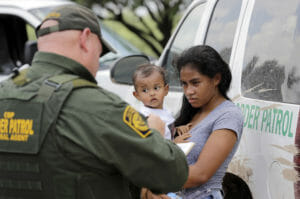

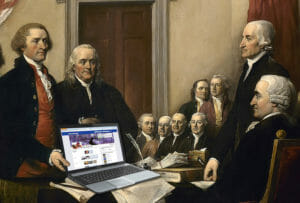
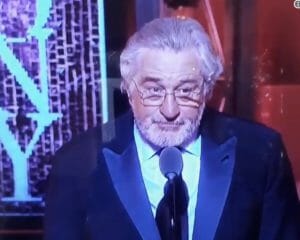
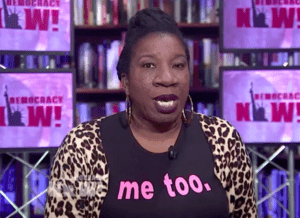
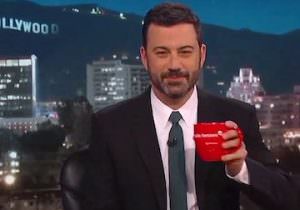


You need to be a supporter to comment.
There are currently no responses to this article.
Be the first to respond.